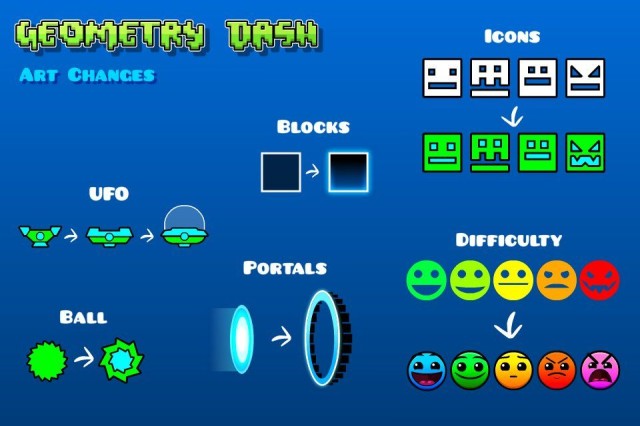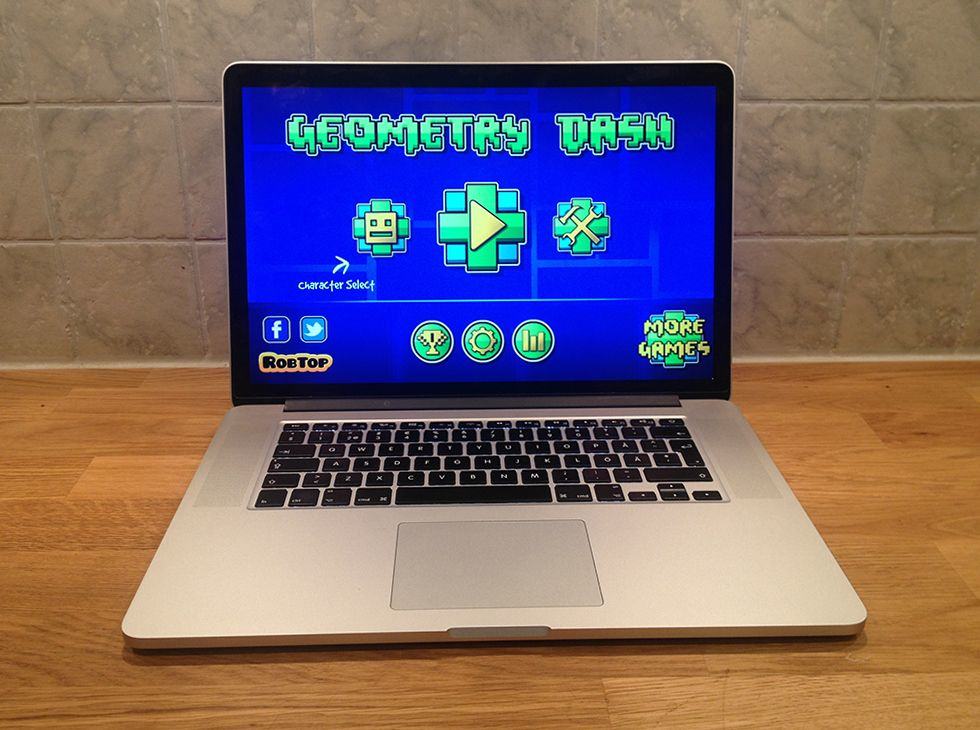Back in August, a new game arrived in the iOS App Store and almost immediately vanished without a trace.
“I received a few great reviews from news sites, but not enough to have an impact,” says Robert Topala, founder of RobTop Games and developer of the disappearing game. “Since I had no marketing budget it quickly dropped in rankings after release.”
For most games that would have been it. And if the story stopped there, it wouldn’t have been a tale of total failure: Topala wasn’t a professional coder, and had only been making mobile games for a couple years at the time. Simply finishing a game, getting it in the App Store and picking up a few accolades would have been nice enough.
But that wasn’t Topala’s story.
His quirky, rhythm-based running game, a $1.99 gem called Geometry Dash, went on to own the App Store, crawling in less than a year from total obscurity to the top of the paid iPhone charts. “Word of mouth,” says Topala, explaining his game’s monumental success. “It’s as simple and frightening as that.”
As it happens, “word of mouth” may be an understatement. The super-addictive Geometry Dash has become an iOS superstar and is now spreading to other platforms like Android and Windows Phone. All told, Topala says the game has been downloaded more than 20 million times, across both paid and non-paid versions.
So what’s his secret?

For starters, we’re in the midst of a golden age for independent game developers in the iOS App Store. One of the big advantages of the platform is the level of interaction it allows between the coders who make games and the people who play them. For example, most indie devs are more than happy to strike up in-depth conversations with players — something almost unheard of in the world of AAA games, the classification given to those titles with the highest development budgets and levels of promotion (think Grand Theft Auto V or Mass Effect).
Topala wisely took things to the next level. While most indie developers go no further than soliciting feedback about features that gamers would like to see in future versions, with Geometry Dash Topala fully embraced the idea of letting his game be driven by its players. He created a level editor mode that lets users create and share their own levels of the hit game. More than 500,000 such custom stages exist now.
“The amount of user-generated content is insane.”
“The amount of user-generated content is insane, and the quality of many levels is truly amazing,” he says.
If there’s a reason the community aspect of gaming is so important to Topala it is because this is how he got his start. Developing his first Flash games as a hobby while studying to become a civil engineer, he didn’t dream of going pro.
When he started out, he had only basic programming knowledge and didn’t even own a Mac (today he does his coding on the MacBook Pro pictured above). Positive feedback about his games in Web forums inspired him to keep going.
“Very entertaining,” read one early appraisal of his first game, Bounce Ball Thingy, back in 2010. “You say you’re a noob, but you’re a noob with taste.”
Brandishing his “noob with taste” badge with pride, Topala made the plunge into iOS developing. “Creating a game from scratch turned out to be something I really enjoyed, so the next step was to start developing for mobile,” he says. “After that I was hooked.”
With Geometry Dash, the broad idea was to create a tribute to the kind of Super Mario Bros.-style platformers he had played growing up. He was also inspired by more-recent iOS titles, such as The Impossible Game, BIT.TRIP RUN! and Super Meat Boy.
“There really was no detailed plan” for Geometry Dash, Topala says. “It simply started as a template with a cube that could crash and jump. Through different iterations I then kept adding more and more features and content until the game felt right.”
The game took about four months of part-time work before it was ready for the App Store. And since its 2013 release, Topala has worked almost constantly to keep it up-to-date — continuously adding content and testing new ideas. “The game started with seven levels and is now up to 15, with each new level adding new gameplay elements and visual details,” he says.
As noted, Topala’s not the only one who has worked to keep the game feeling fresh. The level editor and sharing features created an engaged community focused on the game, far beyond the kind of thing found on most pick-up-and-play iOS titles.
“One thing I like about the art style in Geometry Dash is that you can combine objects to create a certain look,” he says. “Players use this when creating levels and I often see things I didn’t even think was possible to do in the editor.”
“I often see things I didn’t even think was possible to do in the [game] editor.”
Another winning feature? Integration of Everyplay, which lets players record and trade gameplay videos. Geometry Dash has more than 270,000 replays recorded, a cache of personal play-throughs that Topala describes as “an awesome and free way to market the game.”
All this combined to drive the organic growth that slowly snowballed and eventually turned Geometry Dash into a massive hit.
“The problem with mobile gaming in general is how difficult it can be to break through the noise,” Topala says. “Geometry Dash crashed on launch and slowly clawed its way back from the dead. No publicity and no marketing budget as an unknown developer definitely means that the odds are stacked against you.”
However, it is possible to succeed — as he has proved. While it’s far from easy, all it takes is a great idea, a way of building support, and a whole lot of hard work.
“You also need to throw in a good bit of luck,” Topala laughs.
Buy from: App Store



3 responses to “Smart strategies fuel Geometry Dash’s slow jog to success”
How to get this on windows ? This is just for IOS and Android ?
You can use a program for windows called Bluestacks that basically lets you play any android game on the computer.
cool